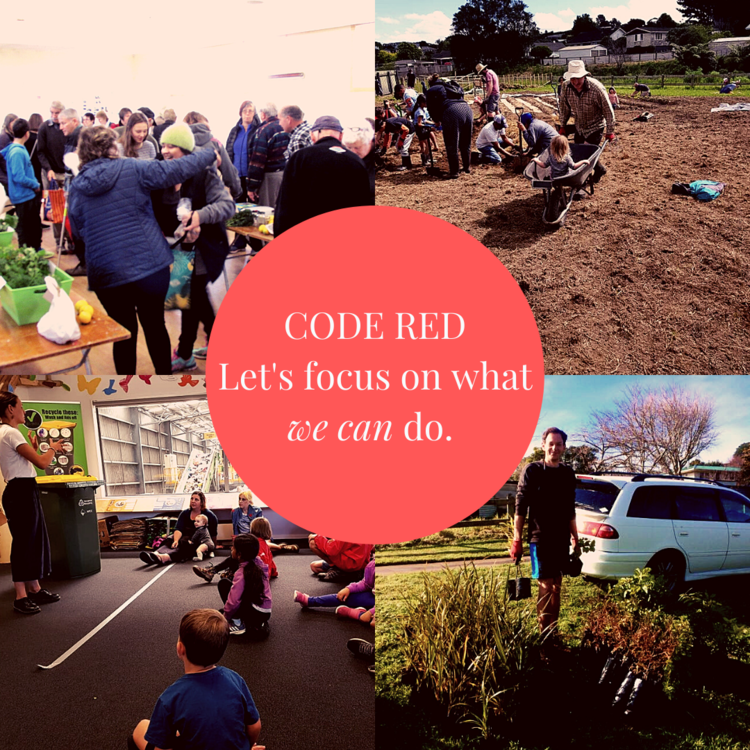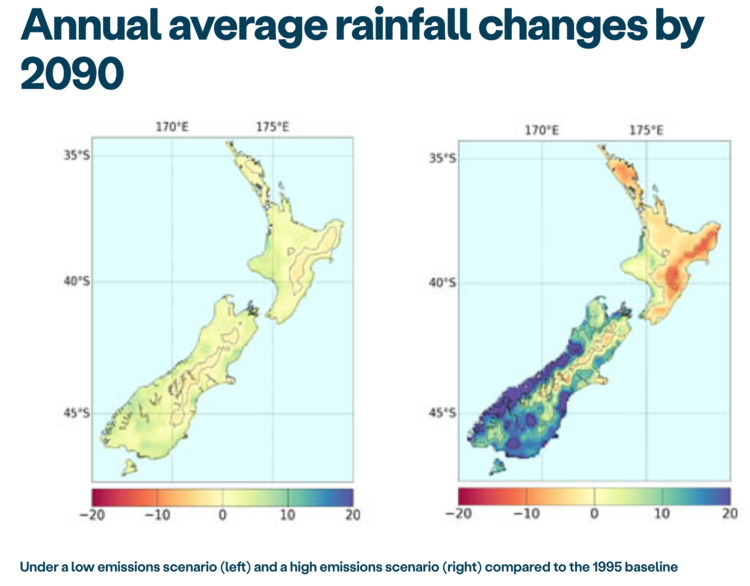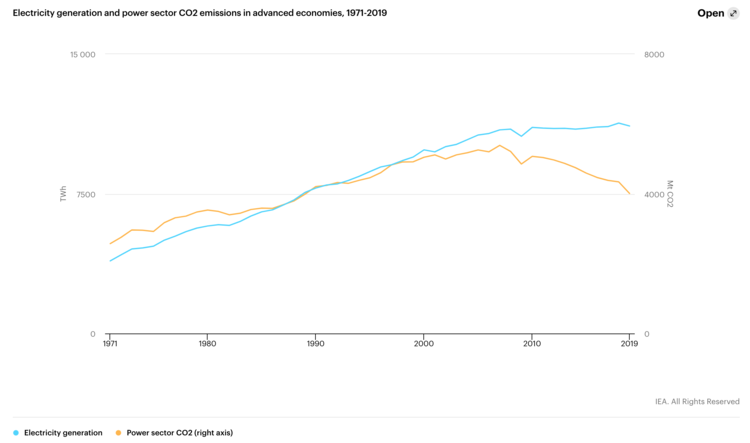IPCC Report: Reactions and Actions
Written by Alexandra Vernal
“UN sounds 'code red for humanity' warning over irreversible climate impact” RNZ
“Climate change: Tonight's IPCC report is a really big deal.” NZ Herald
“Climate change: IPCC report is 'code red for humanity'” BBC News
“It’s Grim- The latest UN report is clear: Climate change is here, it’s a crisis, and it’s caused by fossil fuels.” The Atlantic
Code Red.
This line, used by the Intergovernmental Panel on Climate Change (IPCC) in its latest report on climate change, is receiving different types of reactions across the world. Many are negative, emphasising the harm that has been done and the urgency of the situation, and some are positive, focusing on the progress made and the work that lies ahead. We are going to talk about the positives.
The path of action will bring us closer to our goals: attend a crop swap, drive less, plant a tree, visit the Junction - Zero Waste Hub, or volunteer at a local community garden.
What does the report say?
First, it mentions that “it is unequivocal” that human activity is causing climate change, especially those activities related to fossil fuels.
With the current accumulated warming in the atmosphere, temperatures will continue to rise until about mid-century, no matter how deeply we cut emissions. This means that the weather will become more extreme: heatwaves, floods, and droughts will continue to be frequent occurrences, even in an under 1.5C scenario.
As for New Zealand, the report finds that land areas have warmed by 1.1C between 1910 and 2020 already. Towards the future, rainfall is projected to increase in the west of the country and decrease in many eastern regions; sea-level rise, erosion, pressure on ecosystems, and more extreme weather events are among the effects we are likely to experience within this century. This will require adaptation in all affected areas, for example, by growing resilient food systems and communities and transforming the transport sector.
Source: Ministry for the Environment
NIWA has a list of predictions, threats and opportunities that is worth having a look at, as well as this report from the Ministry for the Environment, which includes regional information.
The IPCC report mentions that, while a continuously warming planet will risk its livability for humans and other species, we can still reach the 1.5C target but only if we make drastic carbon reductions. Reaching net-zero by 2050 could also help avoid the worst impacts.
Possible reactions?
After knowing what the future may bring, let’s stop and think: what do we feel? How can we react to such challenging news?
On the one side of the spectrum is despair or “climate doom”. We freak out, we panic, we are scared. We think that it’s too late, that there is nothing else to do, and that we may as well carry on with our lives as long as we can. This is the worst kind of reaction because it leads us to inaction. Why bother to change when our destiny is written already? Thinking this way is very disabling and disempowering. As in the movie Tomorrowland, in a kind of self-fulfilling prophecy, believing that we can’t avoid a climate catastrophe may be the cause of it actually happening.
While we are completely justified to feel many things about the outlook that the report is sharing, we need to understand one thing: the intention of this report, of the IPCC in general, is not to freak everyone out. It is telling us what may happen if we don’t act.
As Greta Thunberg said at the 2019 World Economic Forum Conference in Davos:
I want you to panic. (…)
And then I want you to act.
We can and should channel all the sadness, fear, anger and, also, all the hope that this Code Red prompts in us, into action. Because yes, it’s bad. But no, it’s not too late to do something about it.
Progress is happening
As a first step, we need to acknowledge that there are currently lots of positive efforts happening. We won’t fall into despair if we know that work is underway to achieve our goals, and that the outcome is still to be decided. Here are some encouraging examples of progress towards reaching the 1.5C limit and reducing carbon emissions:
In NZ, greenhouse gas emissions fell 4.5% in 2020. While this was mostly due to the impact of Covid-19 in the transport sector, it is encouraging to see that a reduction is possible, especially considering the introduction of electric vehicles and better transport alternatives.
New Zealand’s Just Transition plan and Taranaki’s 2050 Roadmap and Action Plans set the base for the future the region collectively wishes for. Progress is being made in these and other governmental plans each day. Our What is New Zealand doing article has more information.
The global Covid response has shown that immediate and coordinated action is possible from a political point of view. Many countries have since committed to “green recoveries”, including the EU, and the possibility of a Green New Deal grows with the international pressure on climate action.
Renewables are becoming more attainable, desirable and mainstream. There are multiple government stimuli in different countries encouraging individuals and corporations to go green. The state of New York, the 11th economy in the world if it was a country, is planning their Covid recovery based on green energy, leading the way for other US states to follow. Australia’s path is not far behind. Closest to home, NPDC’s car fleet is committed to electric vehicles and electrification as part of the council’s Climate Response. As reported by the International Energy Agency:
“Global energy-related CO2 emissions flattened in 2019 at around 33 gigatonnes (Gt), following two years of increases. This resulted mainly from a sharp decline in CO2 emissions from the power sector in advanced economies, thanks to the expanding role of renewable sources (mainly wind and solar PV), fuel switching from coal to natural gas, and higher nuclear power output.”
Source: International Energy Agency. iea.org/articles/global-co2-emissions-in-2019
China (responsible for 26% of carbon emissions) pledged to go carbon neutral by 2060. The UK and EU also made a legally binding net zero commitment, and many other countries followed. With the USA back in the Paris Agreement, the international scene is starting to look better. The existence of this agreement is an achievement in itself, and while countries need to work harder to reach their goals, progress can be tracked.
The climate movement is gaining momentum! Especially with young people getting more and more involved in decision making, whether it’s by engaging in protests, arts, social media or even politics. Check out what’s happening in Germany, where climate activists have created a new political party; how young voters are engaging in climate activism in the US, and how the young climate movement is influencing the green recovery from Covid-19 around the world.
Companies and businesses are pledging for more carbon reductions, and people are holding them accountable. 114 companies have signed the Climate Pledge, including Coca Cola, Visa, Mercedes Benz, Pepsico, Philips, IBM, Unilever, Microsoft and many more. Even fossil fuel companies are starting to take action.
Financial entities are divesting from fossil fuel, investing in cleaner energy and a more sustainable future. The EU is investing 30% of its funds to fighting climate change, the highest share ever of the European budget. More than 130 private banks, representing one-third of the global banking sector, signed onto the Principles for Responsible Banking. This framework seeks to align banking practices with the Paris Agreement and has already made lots of changes. Other organisations, such as UC Berkley in the USA, are also divesting from fossil fuels. NZ Kiwisaver funds are now offering a more sustainable investing option, such as ASB’s Positive Impact Fund.
Project Drawdown has a list of solutions to reduce the impact of climate change. These all exist already and can be implemented at a larger scale. It’s a super interesting resource, have a look.
The importance of collective action
Sometimes, when there’s so much information about the challenges we have ahead, it is easy to believe that all the responsibility to make a change lies on us as individuals. We want to save the world, we want to “be the change”. And that can be very overwhelming.
“Yes, we need to grow faster in these roles and do more. But the weight of the world is not on any one person’s shoulders. It rests in the strength of the project of transformation that millions are already a part of. “ Naomi Klein
While individual action is an important component of the solutions needed to address our current climate crisis, collective action and systemic changes are the other part of the equation. We are a movement, a mass of people working together towards the same, shared, positive, regenerative and transformative future. The change has already started and we are all on the same journey together. In order to do so, we need to work with the system as a whole and actively live the transformation of our current lifestyles.
Let’s channel our worry about our future into collective action, concrete plans and the development of solutions. Let’s channel our anger towards more joint efforts to bring the future we all dream of closer to reality.
What can we do?
Learn more about the impacts of climate change, about what your local authorities are up to, about the Just Transition and what’s happening in the energy sector in Taranaki. Have you checked out the reports from the Climate Change Commission? That’s a good starting point for understanding what measures the NZ government can start doing to reduce our climate impact.
Share your thoughts on the current local plans and initiatives, from the council or from community organisations. If you have a great idea, talk to someone! We are a growing movement of committed individuals, and since the sum is greater than its parts, it’s always best to work aligned with others who are in the same boat. Check out the Climate Change and Consciousness group.
Get involved in the discussions happening around policy on climate change adaptation and share your point of view. Make your voice heard, whatever your opinion is, and search for a middle ground that prioritises our environment’s and people’s long-term health. You can check out NPDC’s Climate Response and learn more.
Invest wisely by checking that your money is not funding activities that are harmful to our planet. You can start by enquiring about your Kiwisaver fund: is it investing in greener alternatives? This article on Stuff talks about choosing options that make an impact, and Mindful Money helps you find a Kiwisaver fund that fits your values.
Encourage businesses, government and organisations to commit to reducing their emissions, or ask them about their plan to decarbonise, and hold them accountable. Write to your MP, councillors or managers to demand action. Climate Action Tracker gives some insight into how each country is performing to reach their goals.
Talk about it! We all have feelings about this topic, and it can sometimes be overwhelming to think about what the future may bring. Climate Focused Feelings meets on the 3rd Wednesday of each month from 6:30 – 8:30 pm at the Huatoki Tennis Club (or on Zoom during Covid times) “to make sense of and be together in our emotional responses to the climate crisis”. Have a look at the flyer.
Continue engaging in sustainable lifestyles and support others who are hesitant. Chat to your neighbours, friends and family about solar panels, electric vehicles, regenerative farming and other sustainable alternatives. The more we talk about an issue, the more relevant it becomes. Our website has lots of resources for you to learn and make decisions: Bike, walk or EV – drive less. Grow your own food and buy local. Buy sustainable products. Reduce your waste, compost and recycle. Make smarter use of energy. Volunteer at your local community garden.
Don’t give up. We are making progress, many things are happening, and we need you as part of this movement. Let’s keep the wheels spinning- we’ve got this. By working together, we can change course.




